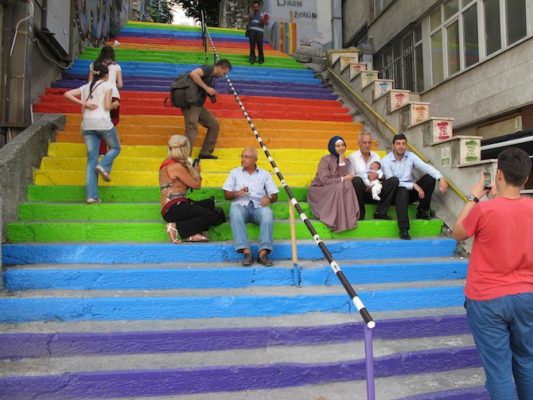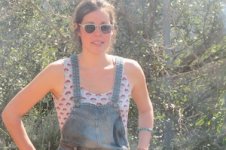Search
To search for an exact match, type the word or phrase you want in quotation marks.
A*DESK has been offering since 2002 contents about criticism and contemporary art. A*DESK has become consolidated thanks to all those who have believed in the project, all those who have followed us, debating, participating and collaborating. Many people have collaborated with A*DESK, and continue to do so. Their efforts, knowledge and belief in the project are what make it grow internationally. At A*DESK we have also generated work for over one hundred professionals in culture, from small collaborations with reviews and classes, to more prolonged and intense collaborations.
At A*DESK we believe in the need for free and universal access to culture and knowledge. We want to carry on being independent, remaining open to more ideas and opinions. If you believe in A*DESK, we need your backing to be able to continue. You can now participate in the project by supporting it. You can choose how much you want to contribute to the project.
You can decide how much you want to bring to the project.

Revolutions are full of leaders, metaphors, martyrs, slogans and also poetry. Revolutions in the era of social networks move at a great speed all sorts of stories, with encouraging, moving and rabble-rousing images, that spread and multiply all sorts of messages, which are then interpreted and sometimes imitated by those who receive them across the planet.
This story begins in Istanbul, the Turkish city where in June the violent confrontations between the police and demonstrators began, in defence initially of a green zone and in the end for the rights of citizens to demonstrate, freely express themselves and relax.
The story of the steps begins, at the end of last August, when a man paints the colours of the rainbow on a long flight of steps on one of the many slopes that lead up to Cihangir, where Taksim square is located. This man, called Huseyin Cetinel, is involved in the LGTB (Lesbian, Gay, Transgender, Bisexual) movement, is 64 years old and says he painted them so as “to see people smile”. The story continues when other men, with intentions totally the opposite of those of the first man, repaint the steps grey. These men have no name, are usually dressed in a dark uniform and respond to the orders of someone who does have a name, the prime minister, Erdogan. Continuing with the story, it is now the turn of the digital images that circulate at great speed across the web, carrying the indignation about the sad tone of the grey cement to the most distant corners and simultaneously the reaction: colourful stairways began to replicate, first across the district, afterwards throughout the city and even in the capital, Ankara, and in other cities like Izmir. Initially the grey brushes endeavoured to undo the work done by the colourful brushes, but in the end they give up. A few days ago when I passed by the stairs, the first that Mr Cetinel painted and then repainted with the help of a small crowd, he was sitting there tranquilly drinking a çay while people took pictures with the colours in the background.
In revolutions there are physical confrontations -6 people have died in Turkey since June, due to the violence-, and there are poetic, metaphorical confrontations that are equally transcendent in terms of political expression.
This story is not the revolution, it is an appendix to the many stories that circulate in the streets and on the web, that talk about the colours and their meanings, of the political struggle and the poetic one, and above all, about the freedom with which these meanings of colour can circulate. The battles in the streets of Istanbul continue, and the intentions of the government don’t seem to have changed. Nor do the wishes of the many people who have demonstrated over the last few months for the freedom of expression . Today the spontaneously painted stairways coexist in the city with the opening of the XIII Biennale and police violence in the streets, some paint in one colour, while others paint in others.

Caterina Almirall has only just been born into this world, but has lived in others, in similar parallel worlds, both liquid and solid. From each she has learnt something, and forgotten something else. Learning to unlearn. In all of these worlds she has been caught up in a web that interweaves everything, some call it ’art’…Entwining, unravelling, weaving and destroying this labyrinth has been her occupation in each one of these planets, and she fears that it will be the same in each of the ones to come.
"A desk is a dangerous place from which to watch the world" (John Le Carré)